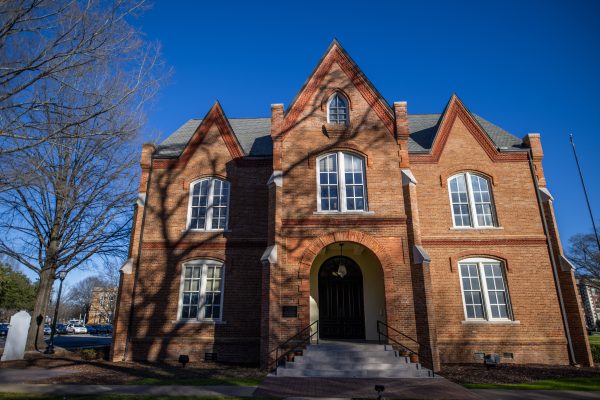Event raises awareness about dangers of hazing
September 3, 2019
On Thursday evening, the University of Alabama’s Greek community hosted an anti-hazing event called “Turning Tragedy into Progress” at Coleman Coliseum.
The speakers at the event were Rae Ann Gruver and Evelyn Piazza, two mothers who lost their children to hazing.
Max Gruver was from Roswell, Georgia and a freshman at Louisiana State University in the fall of 2017. He died 29 days after he moved in. According to his mother Rae Ann, he pledged a fraternity to meet new people and possibly gain a leadership role within his organization. Max was told to come to his fraternity house one Wednesday night for what was called “Bible Study.” The active members brought the new pledges down to the basement and made them stand with their noses and toes toward the wall. The pledges would be interrogated with questions about the history of their fraternity and the Greek alphabet, and if answered incorrectly, the pledges were forced to take a pull (to drink straight from the bottle until told to stop) of 190-proof Diesel alcohol.
That night, Max consumed around 16 to 20 pulls, which was equivalent to about 32 ounces in under two hours. He also had a bag tied around his neck, so he could vomit and then continue to drink.
Max was left on the couch in his fraternity house to sleep it off, where a few friends checked his pulse throughout the night. But he never woke up.
Max died the next morning on September 14, 2017 from choking on his own vomit. Max’s blood alcohol content was .495, six times the legal limit.
“This is not the college experience we, or any of you, are looking for,” Rae Ann said. Timothy Piazza was 19 years old when he died in the hospital on February 4, 2017. It was two days after his first night of pledgeship in his fraternity at Penn State.
Surveillance video shows Tim drinking vodka and beer and struggling to stand throughout the night. He ended up falling down a flight of stairs and once unconscious was slapped, sat on and backpacked. To backpack someone means to fill a backpack with heavy books so the intoxicated person won’t roll over and choke on their own vomit. Tim was left at his fraternity house to
sleep it off because his fraternity brothers did not want to risk getting in trouble.
Once at the hospital, doctors removed his skull to try and reduce the swelling of his brain, but Tim was already brain dead. Doctors informed Tim’s parents that the damage was irreversible. He ultimately died after going into cardiac arrest.
The mothers closed with hazing prevention tactics and encouraged students to speak out against hazing because it could potentially save lives.
“It was powerful, and it makes me very sad that people had to deal with that and these families were hurt like that,” said Lewis Todd, a freshman from Memphis, Tennessee, and a pledge in Alpha Tau Omega, a fraternity on campus.
Around 5,200 students attended the event Thursday evening. This event was hosted by all four Greek councils and the Greek Programming Board at the University.
“Being from out of state and not having much of a clue about fraternity life and what goes on, I was slightly nervous (about hazing) but now I don’t have any worries at all, and I know that every single guy here has my back and they really are my brothers,” said Cordon Vidger, a freshman from Colorado and also an Alpha Tau Omega pledge on campus.
The University of Alabama does not condone hazing, regardless of its form. Under the University’s Code of Student Conduct, hazing is defined as “any completed or attempted action, inaction, situation created, or communication that recklessly or intentionally harms or threatens or is intended to harm or threaten the mental or physical health or safety of a student or individual, or any completed or attempted act that destroys or removes public or private property, for the purpose of initiation, admission into, affiliation with, or continued membership in a group or organization.”
Hazing is a violation of the University’s policy and any student found to have committed the misconduct is subject to the disciplinary sanctions outlined in Article V of the Code of Student Conduct which can include, but are not limited to fines, suspension or expulsion.
To report any type of hazing, call the University’s Hazing Harassment Hotline at: (205) 348-HALT (4258).
For more information on “Turning Tragedy into Progress,” visit The Timothy J Piazza Memorial Foundation on Facebook.











